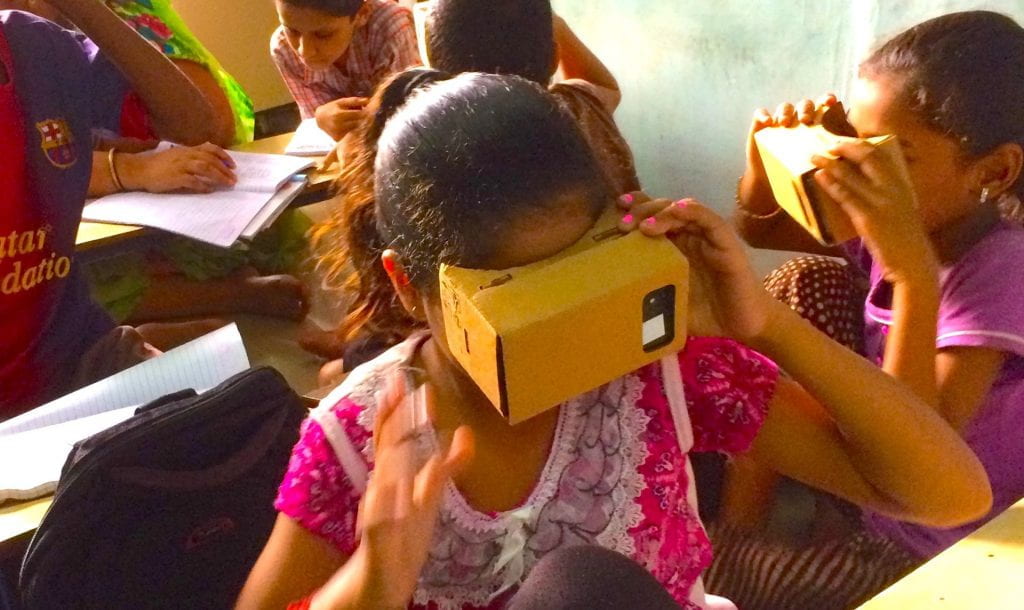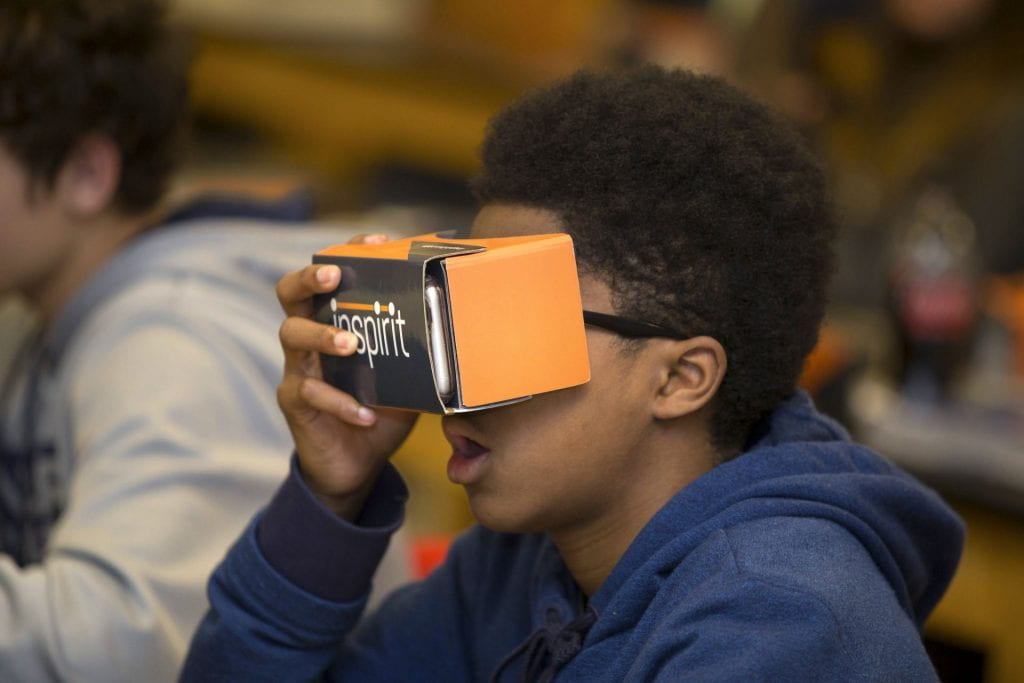
Before he was a Knight-Hennessy Scholar pursuing a Ph.D. in Learning Sciences and Technology Design at the Stanford University Graduate School of Education, Aditya Vishwanath was an avid undergraduate researcher at Georgia Tech.
In fact, he earned the President’s Undergraduate Research Award three times while at Georgia Tech. The focus of much of this work was looking into how virtual reality (VR) could help students in the classroom, often those from disadvantaged communities.
For one such project, Vishwanath worked with Google researchers and Neha Kumar, an associate professor in the School of Interactive Computing, to examine the role that low-cost VR technology can play to support learning in classrooms that cater to communities with limited resources. The team spent six weeks in Mumbai working with teachers in a local school in Mumbai, India.
Also in Mumbai, Vishwanath co-founded MakerGhat, a community-based makers space. Partnering with Azra Ismail, a Ph.D. student in Georgia Tech’s School of Interactive Computing, the two created MakerGhat as a non-profit with the mission to take ideas from concept to creation and application where they are needed most: the communities they serve.
Along with these initiatives, Vishwanath also conducted research closer to campus. Among these, were VR projects done in collaboration with Georgia Tech’s Center for Education Integrating Science, Mathematics, and Computing summer camps in Atlanta.

For another project, Viswanath collaborated with then fourth-year Georgia Tech industrial engineering major Amrutha Vasan to developed smartphone-based VR video content based on Advanced Placement (AP) Biology course material. The content was used for a study conducted with nearly 350 students in Cobb County, Georgia, to determine the effectiveness of the new technology in the classroom.
Vishwanath and Vasun used this project as a springboard for their startup company, Inspirit. The company uses VR and other technologies to transform and increase access to science education for children around the world.

